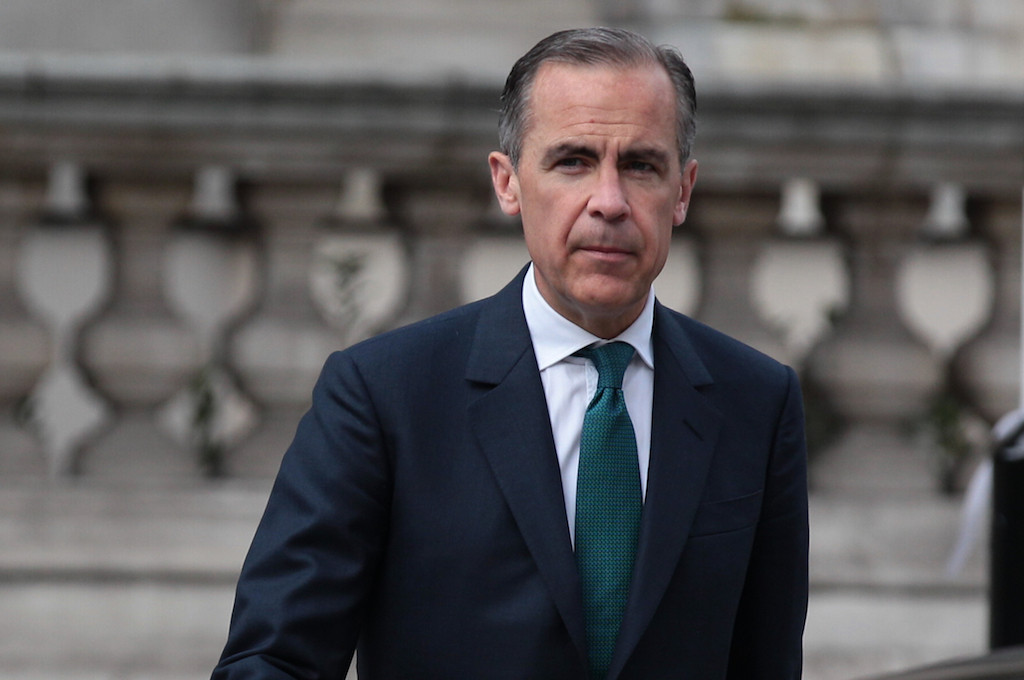Investors expect a delay to Britain’s exit from the EU following the crushing defeat of the prime minister’s Brexit deal, the Bank of England governor has said.
Mark Carney said the reaction of financial markets in the wake of the vote showed a degree of confidence that a no-deal Brexit was unlikely on 29 March. The pound bounced back against the dollar on Tuesday night amid optimism that article 50 would be prolonged and that the prospect of a disorderly severance from Brussels had receded.
“Public market commentary, consistent with our market intelligence, is that a rebound appears to reflect some expectation that the process of resolution would be extended and that the prospect of no-deal may have been diminished,” said Carney.
Speaking to MPs on the Treasury select committee on Wednesday, the governor said investors were following developments in parliament closely to detect shifts in the direction of Brexit. The reaction of EU officials and governments across the continent was also being watched closely.
Carney said a “sharp rebound in sterling following the vote” was the main indicator that some investors believed Brexit could be delayed beyond the end of March.
Door left open
His comments came as the prime minister, Theresa May, left the door open to extend the article 50 negotiation period, in an answer to the Tory MP Kenneth Clarke, who said that everyone he met on the doorstep wanted to stay inside the EU’s customs union.
May responded: “When they were [voting in the EU referendum] I believe they did vote to ensure we continue to have a good trading relationship with our nearest neighbours in the EU but also to improve our trading relationships with others around the world.”
May did not rule out delaying article 50 or ever joining a customs union permanently.
Peter Altmaier, a close ally of Angela Merkel in Germany’s government, said a request to extend article 50 would be given serious consideration. “When parliament needs more time, then this is something that will have to be considered by the European council, and personally I would see that as a reasonable request,” he told the BBC.
The pound fell below $1.27 after May lost the vote, but quickly recovered to hit $1.29. On Wednesday sterling settled around $1.28 and also remained steady against the euro at €1.13.
Carney insisted he was not giving his own opinion of how Brexit would develop. He was only citing the market’s initial take, and how it was expressed. The issue remained in the hands of parliament.
He added: “The markets, like the country, are looking to parliament for direction, and one could expect continued volatility.”
Market is waiting
Carney, who was answering questions as chair of the bank’s financial policy committee, which monitors the health of the financial system, warned that there was not currently “good visibility of the nature of the future relationship” between the UK and the EU. “I wouldn’t put too much weight on these short-term movements. The market is waiting.”
MPs asked the governor about the bank’s stress test scenarios, which included an assessment of a disorderly no-deal Brexit that would trigger an 8% collapse in GDP. Threadneedle Street has come under fire from Brexiters, who said the scenarios exaggerated the likely impact of a no-deal departure.
The Labour MP Catherine McKinnell asked how realistic it was to include an increase in interest rates to 4% in the worst-case scenario, when the more likely reaction of the bank would be to cut rates, as it did following the 2008 financial crash.
Carney said the increase was to preserve the ability of banks to lend in the midst of a crisis and to keep Britain attractive to international investors.
However, McKinnell said an increase in interest rates would likely harm the economy more than it would help the banks, hurting consumer confidence and fuelling rises in unemployment and home repossessions.
She said: “Even if the banks have the capital reserves to lend, in the scenario you describe would banks be lending to companies and house builders when there is serious economic turbulence?”
By Phillip Inman
